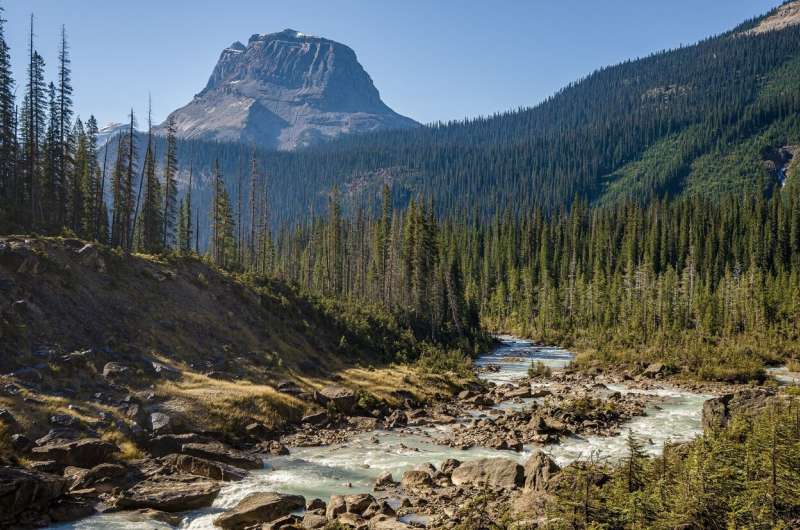This article has been reviewed according to Science X's editorial process and policies. Editors have highlighted the following attributes while ensuring the content's credibility:
fact-checked
peer-reviewed publication
trusted source
proofread
Why ecological restoration without Indigenous leadership won't last

Imagine you're sitting in your living room on a quiet evening with your family reading a book, when suddenly, complete strangers let themselves in your front door. If that wasn't enough of a shock, before you can even find your voice to ask who they are, they begin rearranging your furniture, painting your walls different colors, bagging up possessions that are important to you, and appear to be swapping out the food in your refrigerator.
They do not seem to mean you any harm and work with such purpose that you question yourself, wondering whether you may have forgotten that at some point you hired them for a project. Dumbfounded, you finally manage to ask who they are and what they are doing. They tell you they are here to renovate because the house looked like it needed it—it doesn't seem to matter that they weren't invited and that you have no say over what is going on in your own home.
This is the best analogy I could come up with to attempt to elicit the feelings I experience as an Indigenous person when outsiders show up on Indigenous traditional territories and begin ecological restoration projects. I know I am not alone in experiencing these feelings of intrusiveness and powerlessness. We are our lands. There is no separation.
In these times of ecological crisis within the so-called province of British Columbia, Canada, we have experienced extreme weather events in the past few years such as the "heat dome," prolonged periods of drought, a significant increase in both the frequency and intensity of wildfires, and major flooding. In response, many ecological restoration projects—attempts to repair ecological damage after disturbance or major climate events such as these—have been initiated widely.
Heroic as these efforts may sound, not all ecological restoration is good and the good intentions of those involved are not enough to compensate.
Pop-up restoration maintains broken land-food-people relationships
In our latest paper, published in Frontiers in Sustainable Food Systems, we introduce the term "pop-up restoration" to describe restoration initiatives that fall short on their restoration goals and land restoration that continues to discriminate and impose inequities on unceded and stolen lands.
These efforts are short-lived and quickly discontinued, lacking long-term and continued stewardship. They are conducted under the logic of fortress conservation, that denies access to and use of areas by People whose traditional territories have been used for millennia. They also impose restoration plans that privilege post-colonial baselines, ignoring cultural and historical-ecological data, and the needs and values of the Indigenous Peoples still living there today.
How we [Indigenous People] see lands is often different to settler ecological restoration practitioners and researchers. For us, there is no division between ecosystems and food systems.
Our lands are, indeed, foodscapes—not just for humans, but for all relations (animals, birds, insects, etc) upon the land. Treating land as food systems requires us to take on the responsibility of on-going practices of reciprocity. We care for and steward the land and the land gives back to us. The land is healthier because of these relationships.
Many ecologists are not even aware that the lands they work on today are in a legacy state resulted from the purposeful shaping of landscapes by Indigenous Peoples since time immemorial in places like British Columbia.
Much of the floral and faunal communities are the result of actively managed forests, wetlands, and grasslands through stewardship activities such as intensive fertilizing, burning, plant breeding, plant transplanting, pruning, and coppicing. Many of the challenges our lands face today are merely symptoms of the broken human-land relationships caused by the perpetuation of colonial notions of naturalness. A division between nature and food.
Indigenous lens opens path to ecological reconciliation
We present applying an Indigenous food systems lens to ecological restoration as a solution to pop-up restoration. Indigenous food systems are increasingly recognized for their potential contributions beyond community health and well-being, such as in promotion of biodiversity and sustainable forest use.
Through our case studies alongside St'at'imc and Quw'utsun Peoples working to bring healing to their territories, it became clear that seeing land as Indigenous food systems allows us to confront colonial assumptions about land and Indigenous land-use— honoring the past and present— while allowing us to center the values and needs of communities in restoration planning for the future.
This approach is not only putting reconciliation into action, but it also offers a timely contribution to improving food security given current challenges such as inflation, supply chain issues, and the impacts of major climate events on food production.
Applying an Indigenous food systems lens to restoration has multiple benefits, such as food sovereign and food secure futures for Indigenous communities, the realization of the benefits of using an Indigenous, relational worldview without co-opting Indigenous knowledges, the reconnection of people with land, and achieving ecological reconciliation.
My hope is that our paper stops restorationists from rushing into action as caped crusaders for the environment, and instead, embrace the wisdom and new possibilities that can come from simply taking a purposeful pause before acting.
A pause to get to know the People whose land they are working on, to learn from them about their stewardship practices and land uses, to learn what their desires for their land are, and to recast themselves as supporting actors in land healing efforts led by the People of the land.
More information: Pop-up Restoration in Colonial Contexts: Applying an Indigenous Food Systems Lens to Ecological Restoration, Frontiers in Sustainable Food Systems (2023). DOI: 10.3389/fsufs.2023.1244790
Journal information: Frontiers in Sustainable Food Systems
Provided by Frontiers




















